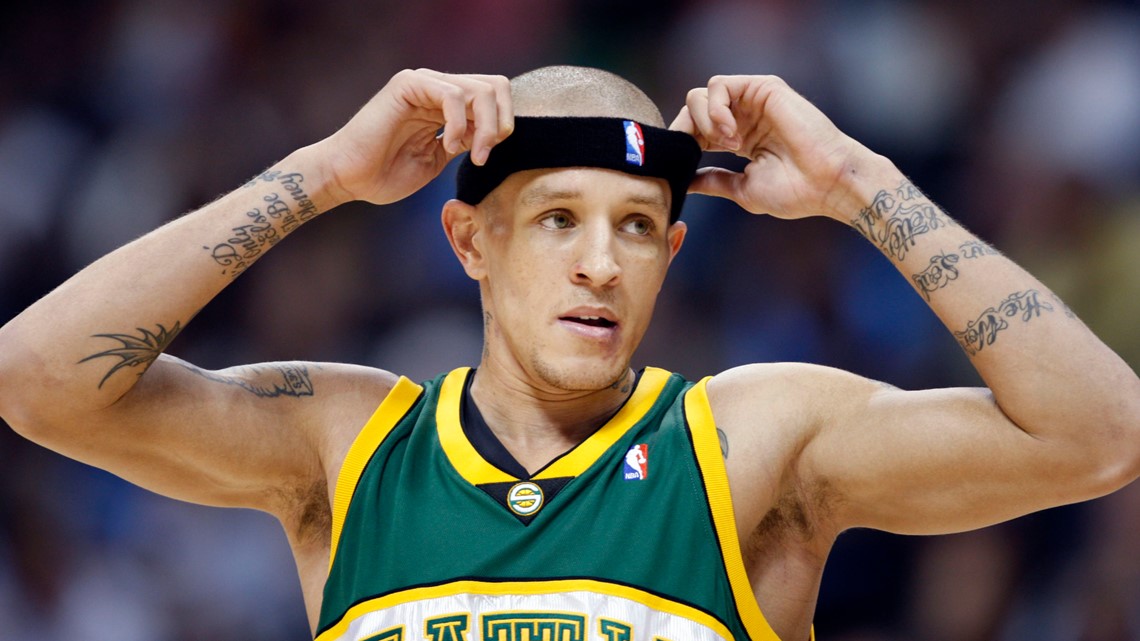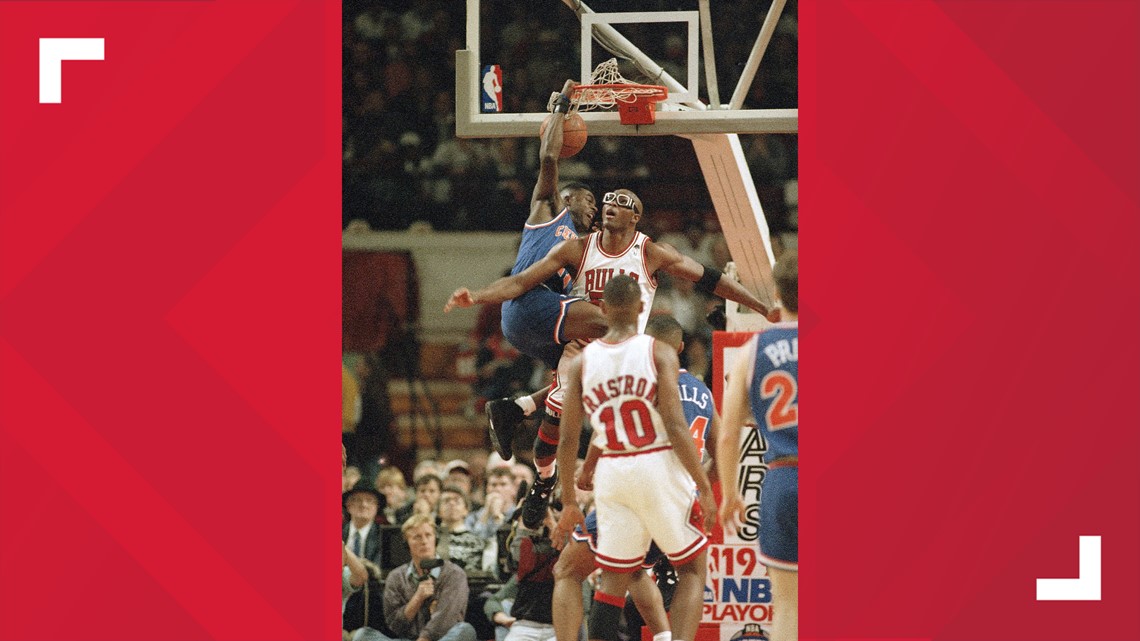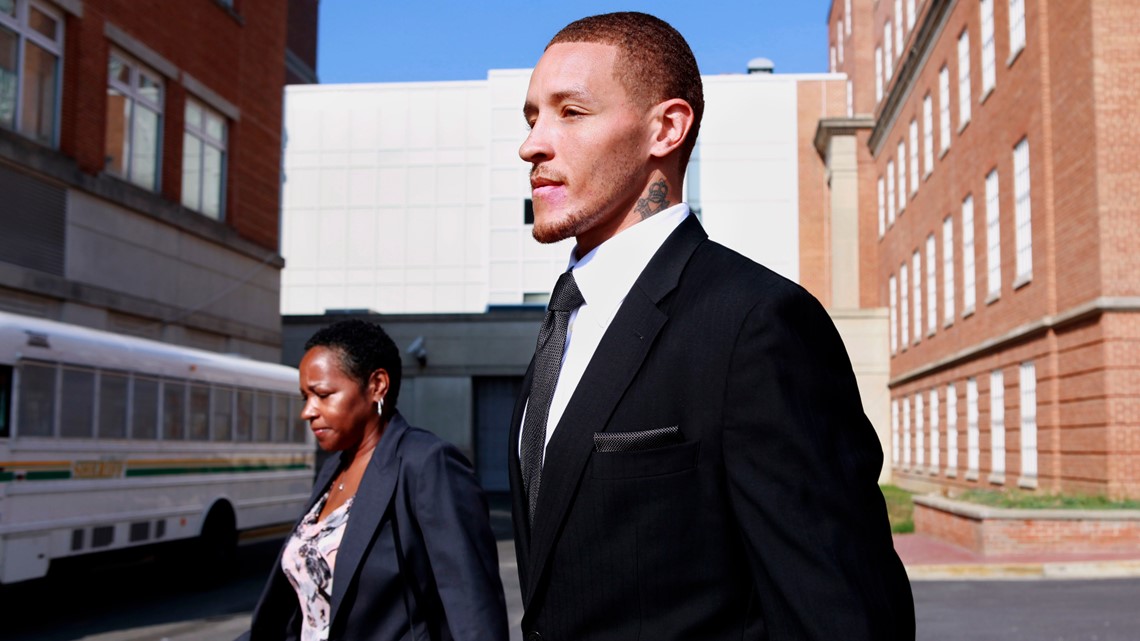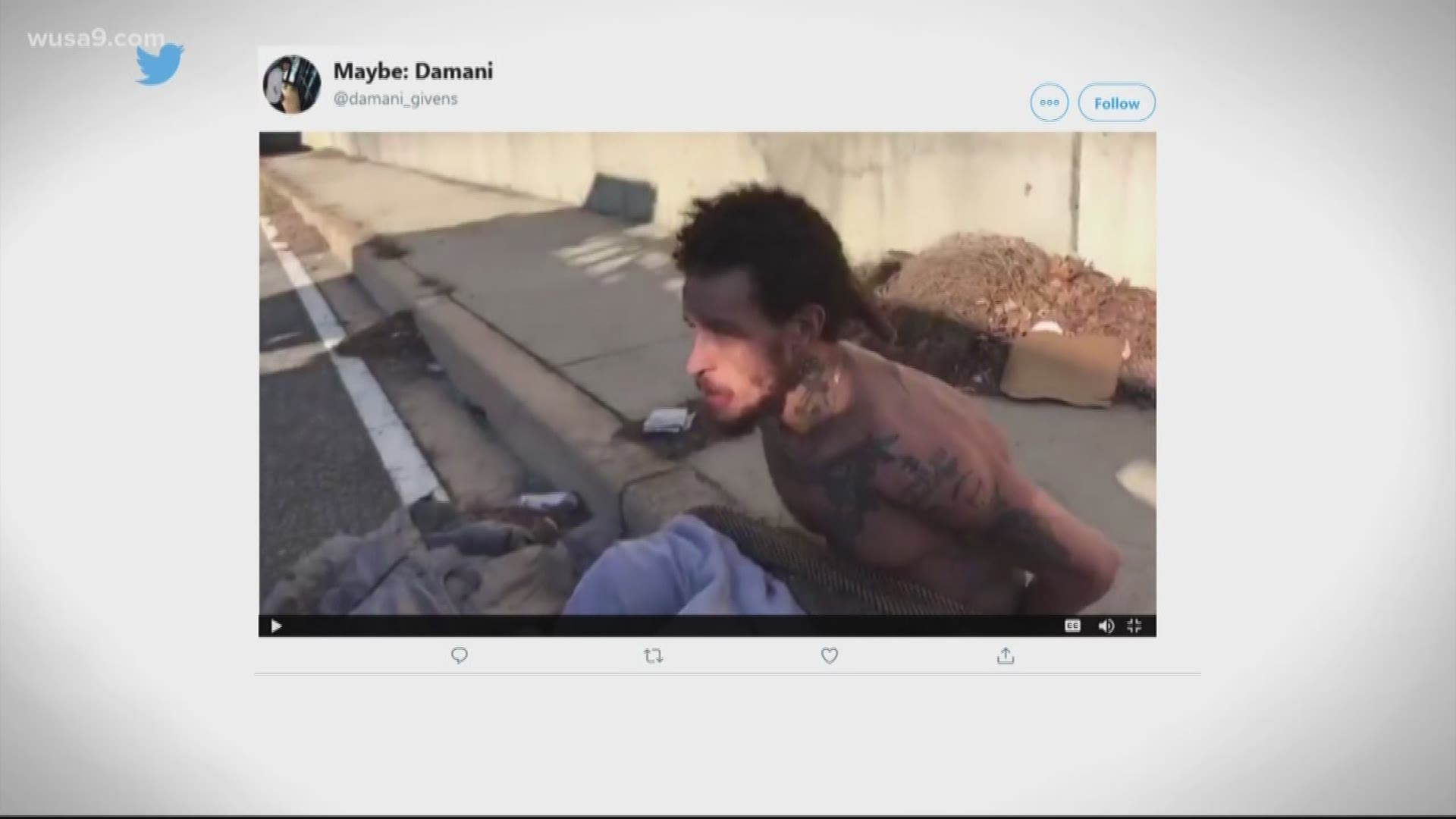WASHINGTON — Former NBA star Delonte West has become the center of conversations surrounding mental health in professional athletes. WUSA9 reached to West's former teammate Damien Wilkins after conversations sparked on Twitter following the release of two disturbing videos of West on the social media site.
The first video depicted West bean beaten in Oxon Hill, Md. A man is seen standing over West, stomping on his head, which was posted on Twitter on Monday.
The second video, which also surfaced on Monday, after officers responded. Prince George's County police confirm an officer recorded a video of West in handcuffs while he was being questioned. The tweet containing that second video has since been deleted.
West's battle with mental illness started in middle school. He told our partners at the Washington Post in 2015 that he found himself repeatedly cutting himself, abusing prescription medication and attempting suicide throughout his adolescence.
"I mean, I was basically crying for attention," he said in the Post. "Maybe 17 or 18, you tell the story differently. 'Man, I tried to kill myself.' At 31, you say, ‘What the hell was I doing?' Looking back now, you just think, 'I was a spoiled brat.'"
NOTE: Content in the video below is graphic.
Later in life, West was diagnosed with bipolar disorder and spent some time in counseling working to battle his demons.
After his career in the NBA, West has reportedly spent time homeless and panhandling in the Maryland area, which he’s denied. After the videos on Twitter went viral, people started speaking up about why the NBA wasn't helping West despite it's mental health initiatives.
NBA veteran Damien Wilkins played with West in Seattle on the SuperSonics and now works for the NBA's union. He and West were teammates and friends.
"We went through some battles together, shared some laughs together, broke bread together," Wilkins said.
Wilkins has vowed to help West with his bipolar disorder using resources through his work with the NBA Players Association. He said being on a team with West helped him learn about his personal struggles, and feels he can offer West a strong support system.
"We lived in the same apartment building actually, and Delonte was one of my favorite teammates," Wilkins said. "He was super funny. He was always himself. He was always a real guy. We spoke quite a bit about some things that he had gone through. And a lot of things were, you know, secret. We talked personally about a lot of things. Obviously, you know, you have a teammate you’re enduring a whole season with -- bus rides, plane rides, locker room conversations -- at some point, you may delve into your personal lives with each other."
Wilkins said talking with West about his battles while they were teammates wasn’t unique. After spending so much time with other players, Wilkins was used to it.
"Everyone has their shit," Wilkins said. "At this moment now, it's sad to see where things are with him and I can't even begin to imagine where things have gone wrong, but to see him, you know, down like that and in that position, it saddens me, and it hurts me."
But Wilkins said in order to give West help, he must first accept it.


"I don’t want to make him feel like a charity case and I don’t want to make him feel like any less than who he is as a person, as a man," Wilkins said.
Wilkins wants to give back now that he has the opportunities to do so.
"I feel like being in the position that I’m in right now I feel like it’s kind of my duty to say, 'Hey, if you want it, I’m here to help. I’m here to help you get the help you need. If you don’t, that’s fine, too. Still, no judgement from me,'" Wilkins said.
Wilkins remembers West to be "fiery" and a very talented basketball player. He didn’t see West as any different than the rest of the team.
"We all have our spats with coaches and authority. We’re no different than him in that regard, in terms of players when things get emotional," Wilkins said. "But for the most part, he was just himself."
Now, following West's stint with the NBA, he has the ability to accept those resources offered by the organization. The NBA Players Association offers former and current NBA players mental health assistance. The union has therapy and career programs to help get players back on their feet.
"Sometimes that is one of the biggest helps," he said. "Just being able to have the confidence to know that you can take care of yourself – that’s what the union has always been here for, that what we've always advocated for, that's what we've always been about."
To Wilkins, West is more than deserving of those opportunities.
"It’s one of our fallen brothers," he said.
Even if West doesn’t want the professional help, Wilkins said he’ll still be there to listen.
"Sometimes people just want to know that you too kind of understand him and have some type of empathy and familiarity with what they may be dealing with," he said. "And maybe he doesn’t know or understand what he’s dealing with."
The issue of mental illness hits close to home with Wilkins. His dad, Gerald Wilkins, spent 14 years in the NBA and was diagnosed with bipolar disorder 13 years ago.
"It’s affected my family in ways that you can’t even imagine," he said. "I don’t have much of a relationship with my dad at the moment right now because of things going on, and things that he’s done to me, to my family. But we’ve tried countless times to get him the help that he needs. Like I said before, a lot of times people just don’t want the help. And he’s one of them. But that doesn’t mean Delonte doesn’t want that help."
Following his dad's diagnosis, it isn't something Wilkins takes lightly.
"I've lived it. I’ve lived with that dynamic," he said. "Being my dad, it certainly hits close to home. We're talking about someone that’s been my hero, someone that I grew up wanting to be like. I didn't grow up wanting to be like Magic Johnson or Michael Jordan, or even my uncle Dominique Wilkins. I didn't want to be like him. I wanted to by like my dad, Gerald Wilkins. To know now that my relationship is nonexistent with him because of this, and because he refuses to get help, that doesn't have to be Delonte's story. Maybe he does want to get help, maybe he just hadn’t gotten it."


West isn't fighting this fight alone. Wilkins believes there's an overarching issue with discussing mental illness in professional athletes and men in general.
"We’re not supposed to feel," Wilkins said. "We’re supposed to be supermen and women. It’s the reason why men, particularly black men, have always had an issue or have issues discussing any problems that they do have because one of us want to feel judged. We want to be able to express ourselves and be able to talk about our feelings and talk about what we have going on internally and to be able to ask for help. But we don’t and we suffer through it. And in that process, while we’re suffering through it, it’s killing us on the inside and turning us into people that we don’t want to be."
"Who knows how long Delonte wanted to probably just talk to someone? But instead, he was probably taken advantage of and feeling the pressure of having to take care of his family at the same time, so he couldn’t show a moment of weakness," he adds.
For now, Wilkins just wants West to know he isn’t alone. His teammates and the NBA Players Association have his back.
"He’s not alone in this," he said. "And it’s nothing to be ashamed of … I’ll just keep him in my prayers and hope that he gets the help that he needs because he can thrive. He can beat it. He can get past this chapter."



